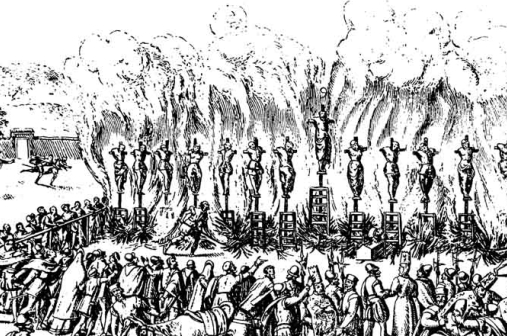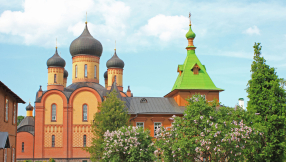
The skeletons of 12 Jewish victims of the Portuguese Inquisition have been uncovered by archaeologists excavating in Évora, Portugal.
The remains were round outside what was once the Portuguese Court of the Inquisition. They would most probably have been convicted of practising Judaism, according to Forbes magazine.
Archaeologists Bruno Magalhães, Teresa Matos Fernandes and Ana Luísa Santos of the University of Coimbra write in The Journal of Anthropological Archaeology that they found three men, nine women and 1,000 more bones from another 16 people.
They described the site as the Jail Cleaning Yard of the Inquisition Court of Évora which operated from 1536 to 1821.
"The archaeological and anthropological contexts, including the Inquisition individual historical records consulted, are consistent with individuals not reconciled with the Catholic faith," they say.

They examined manuscripts from the Inquisition which enabled them to identify 87 prisoners who died between 1568 and 1634, the period when the jail dump was in use. The adult bodies found are thought to have been of people tried for "Judaism, heresy and/or apostasy".
"More than a penalty to the body, this was a punishment to the soul of the deceased," the archaeologists say. "The specific context of this place, as well as all anthropological, archaeological and historical information helped to characterise these individuals as unburied dead, once a proper funeral had been denied to them."
Other "heresies" beside Judaism which led to persecution by the Inquisition included Protestantism, Islam, witchcraft, bigamy, sodomy and blasphemy. Techniques such as "strappado" or suspension by the arms and "potro", stretching on the rack, were used to extract confessions.
As there is no evidence from the 12 bodies that they died during torture, it is possible they simply starved to death because of the terrible conditions in the jail.
Witches were usually buried face down. Other rituals were applied to bodies, such as side-by-side burial, according to the "heresy". Those murdered for being Jewish were not given any burial honours or rituals at all, and their bodies simply dumped.
"These are individuals who were left to rot in the religious court dump. In this way, the individuals from the Jail Cleaning Yard were not buried but discarded. The purpose for the improper treatment of the deceased was not only punishing their body but mostly to weaken and destroy their soul, due to their perceived religious deviations," the authors of the paper say.
















